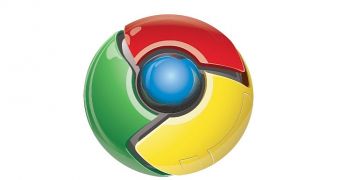The Chrome Operating System, Chrome OS for short, has only found purchase in the mobile PC market, for now, but it has begun to branch out into the mini desktop front and, apparently, the all-in-one computer market as well, if Samsung and HP really are planning what reports say they are.
According to Taiwan-based makers of PC components and system assemblers, Samsung and Hewlett-Packard are planning to launch all-in-one systems running Chrome OS this year.
That means that we may soon start to see computers with barely any integrated storage, but all the capabilities of a regular system, only not running Windows.
Chrome OS is a cloud-based operating system, which means that you will need an always-on Internet connection in order for the purchase of a Samsung or HP Chrome OS AiO to make sense. The same goes for Chromebooks and Chromeboxes.
The reason that very little storage is needed (16 GB or less, and even that one will probably stay unused, for the most part) is because only the OS itself is stored locally.
We assume that there will be an option to natively save a file or two, but the core feature of Chrome OS is that all the operations are done in the cloud, and all files are stored there as well.
Say you want to edit a photo. You can upload it to your Chrome OS AiO from a flash drive, and it will be automatically saved on a Google server somewhere in the world.
Then you can launch an editing application (also stored in the cloud) and perform any modifications you want, all of which are saved in real time.
A benefit of this approach is that your account on Google Cloud is the only thing that matters. If your PC breaks down (no more likely than for standard systems), you won't lose any work. Also, if you have a Chrome system at home and one at work, your work will be fully accessible from both, no matter from where you do your tasks.
It also makes it easier to, say, change the computer with another, because there is no file transfer step involved. It's all in the cloud.
The downside is that you can't control the security of your files, and it's hard to track what server they are on, and what backups exist. That is why Chrome will probably not catch on with businesses and enterprises any time soon, especially those that protect their trade secrets religiously.
They do seem to be getting popular in schools though. Make it easy to access, save and work on a project, among other things.
There is no telling how large the Samsung and HP Chrome AiOs will be, or what prices they will have. Also, no hints were given as to whether or not the two have scored any deals in the education market for them.

 14 DAY TRIAL //
14 DAY TRIAL //